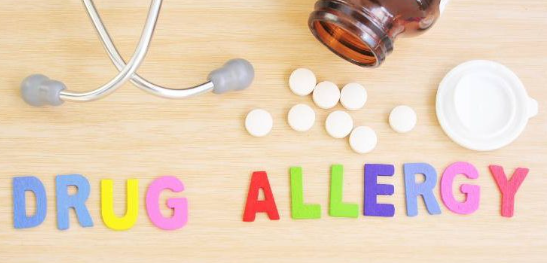People with seasonal allergies frequently use over-the-counter and prescription medications to treat symptoms such as coughing, sneezing, runny nose, congestion, and itchy eyes, nose, and throat, also known as allergy.
However, many people are unaware that these medications, especially antihistamines, carry the same risk of adverse effects, drug interactions, and overdose as other medications.
“All medications have side effects, even when taken correctly and in accordance with the dosing directions on the label,” said Diane Calello, executive and medical director of the New Jersey Poison Control Center at Rutgers New Jersey Medical School.

Allergy Medications
“We want consumers to be aware of the potential side effects of over-the-counter and prescription allergy medicine, which can range from agitation to drowsiness to upset stomach or liver damage,” Calello said in a release from Rutgers.

Allergy Medications
To mitigate these dangers, experts recommend the following safety measures:
- Keep medicines locked up. Children and cats are naturally curious, which increases their danger of unintentionally eating medications. This may lead to poisoning.
- Choose drugs that address your unique symptoms. If you are congested, take a decongestant. However, if you have a cough, only use a decongestant that contains a cough suppressant. Adding more medications to a tablet or potion increases the potential for drug interactions.
- Be aware of alcohol. Many components in cold and allergy treatments can react adversely with alcohol, resulting in nausea, vomiting, sleepiness, fainting, and loss of coordination. These interactions can occur even if the medications and alcohol aren’t ingested together.
- Check the active components. Many medications have the same active chemicals, despite having distinct names or being meant to treat different illnesses. Taking these together can lead to an overdose.
- More is not better. Do not use medications for longer or in larger dosages than the label prescribes. Instead of swigging from the bottle, always use a syringe, dosing spoon, or cup to measure the amount of liquid medicine you take. Don’t use a kitchen spoon because sizes may vary.
- Do not get behind the wheel. Many medications make driving and operating large machinery dangerous. They can produce tiredness, weariness, lack of attention, blurred vision, and impaired coordination. “Drugged driving” might land you in the same kind of difficulties as driving drunk.
- Children’s dose guidelines are an important business. Infants and children should only be given medications designed expressly for them. Meds should be measured according to the child’s weight, not their age.
- Understand your encounters. Consult a pharmacist or a health care professional about the potential drug-drug interactions between the medications you are taking. They can help you choose medications that won’t interact dangerously with each other.

Also read: Cannes 2024: Aishwarya Rai Donned Falguni Shane’s Black Peacock gown
images source: Google
Disclaimer: The opinions and suggestions expressed in this article are solely those of the individual analysts. These are not the opinions of HNN. For more, please consult with your doctor




































